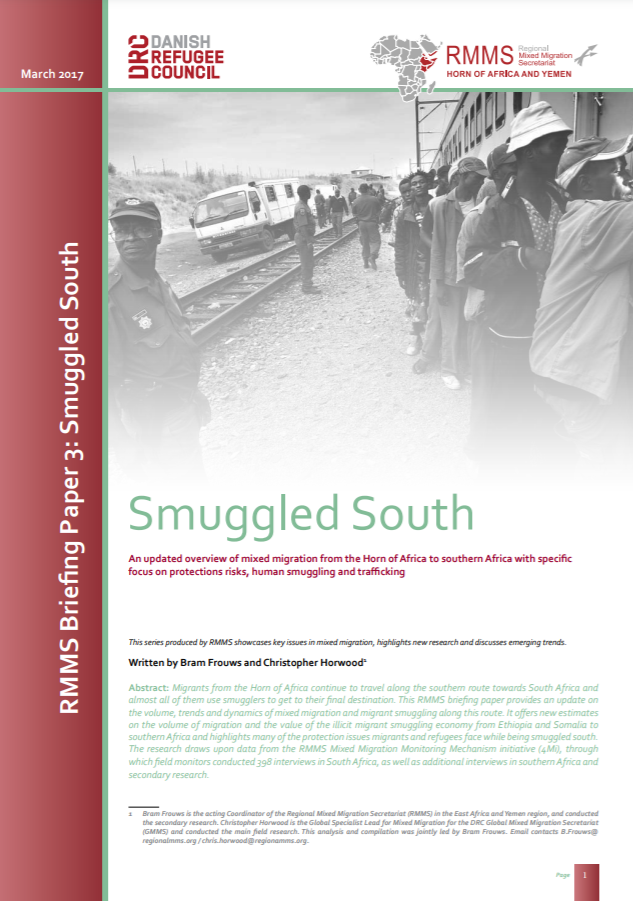Spaces of Vulnerability and Areas Prone to Natural Disaster and Crisis in Six SADC Countries

In light of national, cross-border, transboundary and regional hazards of various type in Southern Africa, a desk review was undertaken by the International Organization for Migration (IOM) in order to enhance the understanding of disaster risk and spaces of vulnerability (i.e. exposure to hazards) in terms of natural disaster and/or crisis situations in Southern Africa, and map the current disaster risk governance structure and preparedness capacity in the region. Six countries in the Southern African Development Community (SADC) region – namely, Botswana, Malawi, Mozambique, South Africa, Zambia and Zimbabwe – were targeted. Based on existing hazards, vulnerability and resilience, the concept of spaces of vulnerability (i.e. areas with higher exposure to risk), the review identifies spaces of vulnerability in the region to include the following elements: 1. Location of national or transboundary hazards and hazard-prone areas, including but not limited to the Zambezi, Limpopo and Okavango river basins; the Indian Ocean coastline; the East African Rift Valley; dry lands; and areas experiencing particularly unpredictable weather patterns. 2. Areas with increased level of vulnerability, including but not limited to: a. Rural areas with high poverty levels; depending on rain-fed agriculture and subsistence farming; with inadequate housing and/or access to basic services such as water and sanitation; at distance to or absence to health-care facilities; b. Urban areas not properly planned and/or informal settlements; with high poverty levels, unemployment, income inequality and social exclusion; with inadequate housing and/or access to basic services such as water and sanitation and/or otherwise poor infrastructure; with high population density; with a diverse community living in discord with each other and/or facing social tension; c. Border areas with a high level of cross-border population movement, or border areas where communities face transboundary hazards; d. Specific vulnerabilities faced by population groups or individuals, including but not limited to migrants and particularly undocumented migrants and “people of concern”; people living with HIV/AIDS; people with special needs; people disadvantaged by or living in the margins of a community/society. 3. Areas with little or no disaster risk management capacity – including absence of comprehensive planning for prevention, preparedness, response, recovery and mitigation activities. As such, disaster risk reduction and resilience initiatives adapted to national, cross-border, transboundary and regional hazards; development challenges and vulnerabilities; and disaster risk management systems are required, mainstreaming relevant regional dynamics such as sustainable development, climate change, urbanization, and migration into disaster risk management frameworks and operational mechanisms.
Country
Botswana
Malawi
Mozambique
South Africa
Zambia
Zimbabwe
Region
South Africa
Year
2017
Topics







